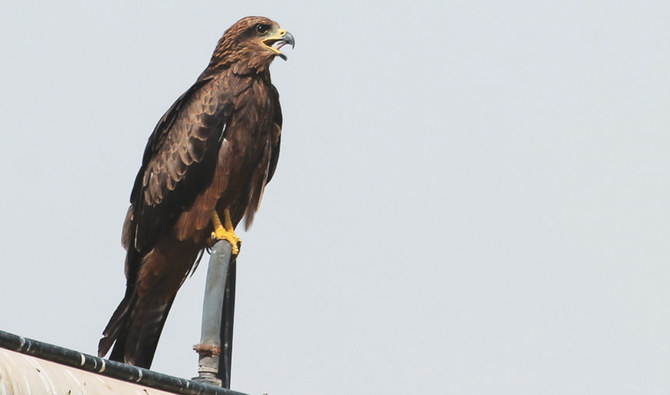BEIRUT: A medical intern at Rafik Hariri University Hospital was one of just five new cases of COVID-19 identified in Lebanon in the latest daily figures released on Friday.
Those figures did not include the results of random tests carried out by the Ministry of Health in various Lebanese municipalities, however.
The total number of confirmed cases of COVID-19 in Lebanon now stands at 668. The death toll remains 21. The total number of patients who have recovered is 86.
The Ministry of Health said in its daily report that the other new cases included people already residing in Lebanon, not the expatriates who have returned to the country during the past week. In the past 24 hours, 1,070 tests have been carried out in Lebanon.
The intern had reportedly not been working in areas of the hospital dealing with COVID-19 patients, nor been in contact with anyone suspected of carrying the virus.
The hospital said that, after informing the Ministry of Health, all medical staff working in the same area as the intern have been quarantined and will be tested, along with all patients on that floor of the hospital and the entire floor has been sterilized “according to medical and scientific standards.”
The Easter holiday began in Lebanon on Friday and will continue until Monday evening, but the streets remain quiet as shops, restaurants, cafés, banks, schools and universities remain closed.
HIGHLIGHTS
• The President of the Association for Bird Conservation in Lebanon, Fouad Itani, said the American University of Beirut campus is popular with the birds as it is currently empty of students and has many trees.
• The current crisis may have a positive side, Itani said, as hunting is likely to decline due to the high cost of cartridges and because of curfews.
One group benefiting from the disappearance of people from the Lebanese capital’s streets is the migratory birds that journey through Lebanon on their way to Africa each spring.
The President of the Association for Bird Conservation in Lebanon, Fouad Itani, told Arab News: “Lebanon lies on the second-most-important migration flyway for birds — the eastern Mediterranean flyway. Both resident and migratory birds need a safe place to breed, and many birds are now resting or nesting in the Beirut Waterfront area.
“Those birds are enjoying this site because it has different types of habitats, including rocky areas, grasslands, scrubs and trees, and it’s located next to the sea,” he continued.
“And the threat of human disturbance from those who usually run there, walk their dogs, or bike there, (is greatly reduced) due to the lockdown. Now the birds are finding the area safer.”
Itani said he documented between 10 and 20 species during an average spring. “Now I am able to document between 30 to 40 species,” he explained.
“Some of the nesting species are either resident or summer breeders — such as graceful prinia, spur-winged lapwing, Spanish sparrow, and the Palestine sunbird and other passerine birds — and many migratory species are also resting there, including wagtails, herons, egrets, waders, shrikes, wrynecks, hoopoes and others.”
He added that the American University of Beirut campus is popular with the birds as it is currently empty of students and has many trees.
The current crisis may have a positive side, Itani said, as hunting is likely to decline due to the high cost of cartridges and because of curfews.













